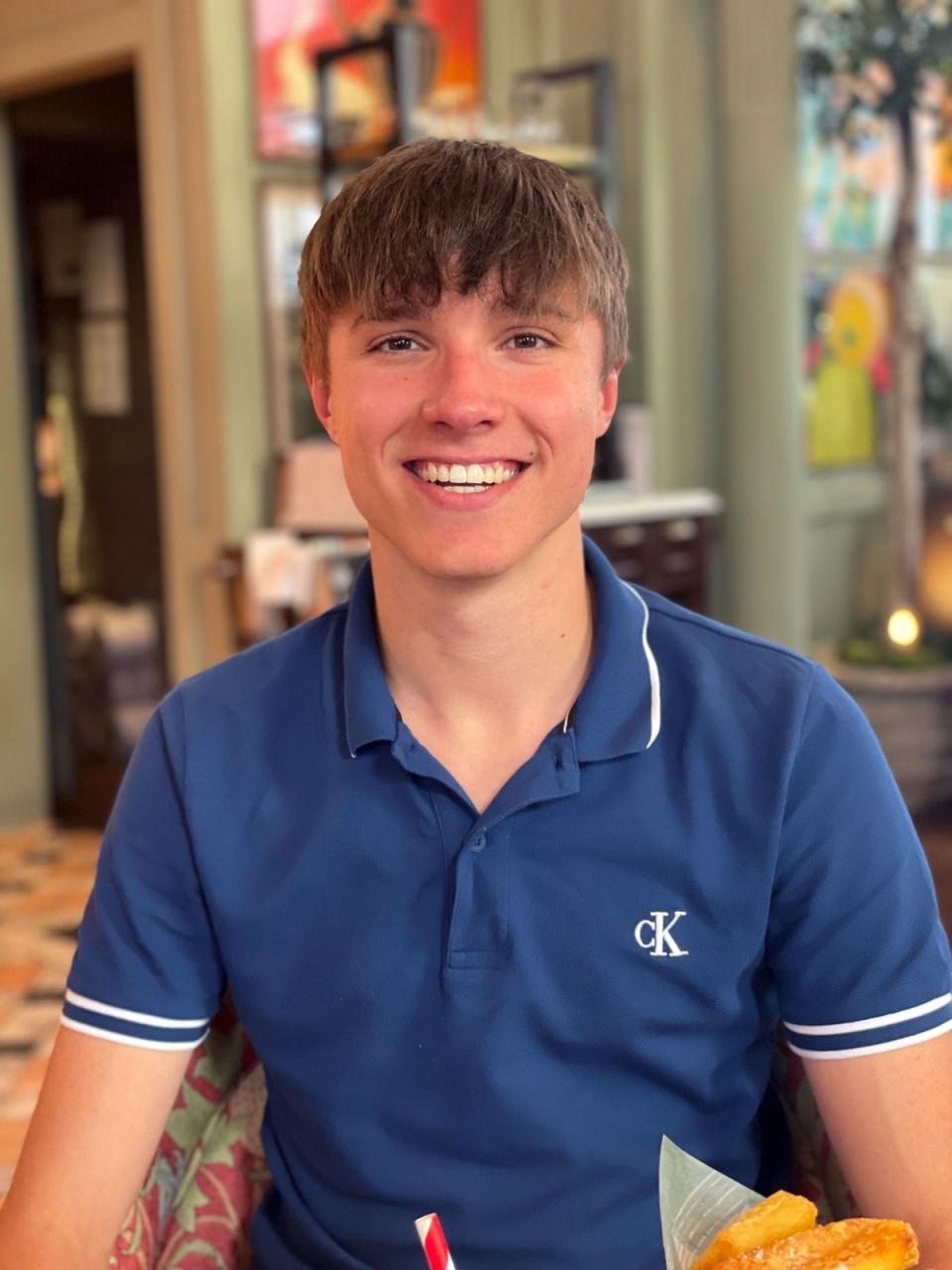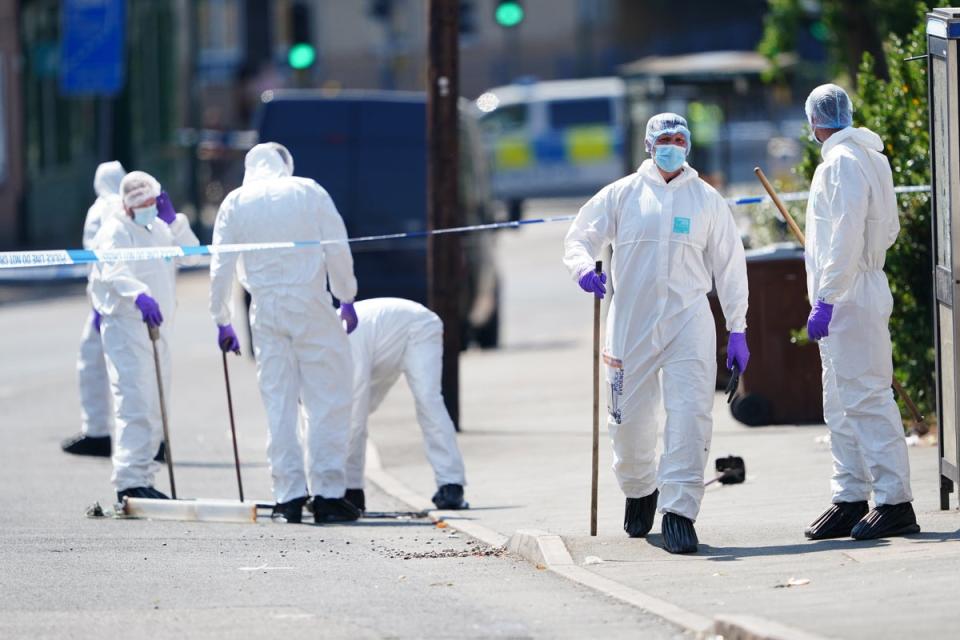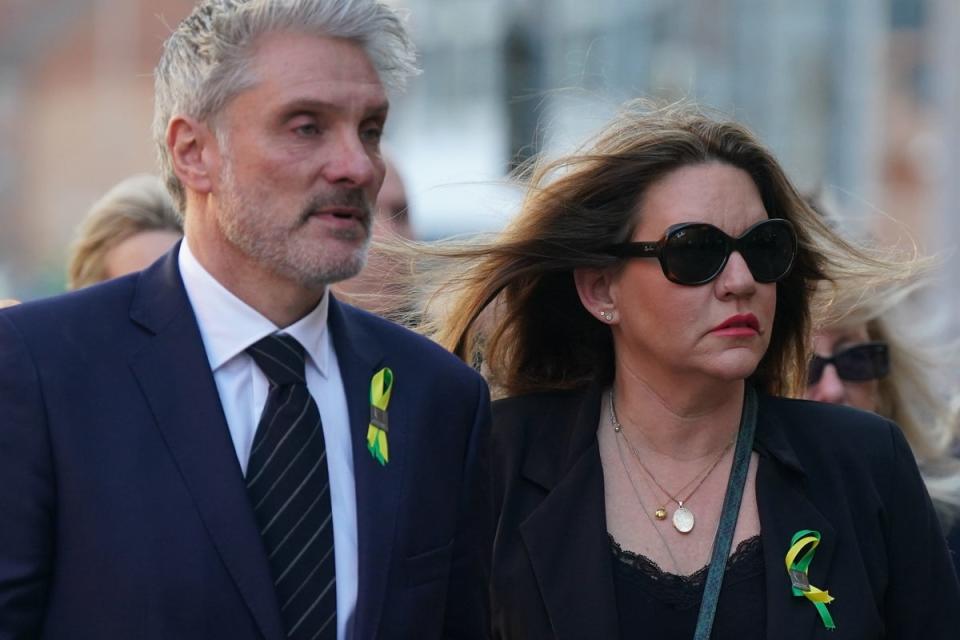Valdo Calocane: How quiet Nottingham grad from Christian family went on to kill three in monstrous attack
For students at the University of Nottingham, the evening of 12 June marked a cause for celebration. Exams were over, summer lay ahead and for aspiring medic Grace O’Malley-Kumar and history student Barnaby Webber, their futures promised to be bright.
Yet just hours after leaving a nightclub in the city centre and only 200 yards away from their student accommodation, the 19-year-olds fatefully encountered engineering graduate Valdo Amissão Mendes Calocane, who was waiting in the shadows to select his victims.
Mr Webber was repeatedly stabbed with a dagger, while Ms O’Malley-Kumar bravely tried to fight off their attacker. Despite her attempts to defend her friend and scream for help, Calocane turned his attention towards her and was “uncompromisingly brutal” in his assault.

She managed to stagger her way to a nearby house and collapsed at the front door as she shouted for help, while a third-year student was the first to come across the horrific scene and call the police at around 4am.
While they lay dying on the ground, Calocane calmly walked away and made his way to Magdala Road, where he came across Ian Coates, a caretaker at Huntingdon Academy who was just five months away from retirement.
The 65-year-old was brutally stabbed and left to die in the street, while Calocane stole his vehicle and ploughed into three pedestrians in the city centre before being tasered and arrested by police.
After he was assessed by three psychiatrists, the prosecution on Tuesday accepted the 32-year-old’s pleas of manslaughter on the basis of diminished responsibility, given his history of mental health issues.

Once known as a quiet, studious pupil who had regularly attended church, Calocane is believed to have developed paranoid schizophrenia in the wake of the Covid lockdowns.
Born in Guinea-Bissau and brought to the UK as a young boy, he spent the majority of his childhood in Haverfordwest, Pembrokeshire.
Former classmates at Sir Thomas Picton School there described him as intelligent, with a keen appetite for football and science topics. Alongside his parents, he regularly attended the independent Pentecostal Calvary Church, with the family described as “high achievers”.
His father, Amissao, 55, is a carer and his mother, Celeste, is an intensive care nurse at the local Withybush Hospital, while his brother Elias went on to study at the University of Cambridge.
It is understood that for several years, Calocane lost contact with his family and stopped attending church with little explanation.

Hazel Vaughan, wife of the pastor of the church, told The Times: “He moved out from his family home and got his own place locally and then got his qualifications in his thirties after moving to Nottingham. His parents used to visit him there and they have been to see him since this happened, but they are very private people.”
He would go on to enrol at the University of Nottingham to study mechanical engineering, the same university attended by two of his victims whose lives he would later callously take.
While he succeeded in graduating in 2022, his brother later told investigators that he became aware of Calocane’s mental health issues during his degree studies, as he came to believe he was being spied on by his housemates and being controlled by radio and sonic control.
In May 2020, he attended hospital believing that he was having a heart attack and was arrested after returning to his flat and causing damage to a door.

An assessment under the Mental Health Act 1983 was carried out at a Nottingham custody suite by psychiatric services, who concluded that Calocane was psychotic but that his risk to others was low. He was then referred to a crisis team for review at home and he was released without charge.
Yet within one hour, he had knocked down another door and was arrested for criminal damage. This led to him being arrested and admitted to inpatient psychiatric services at Highbury Hospital.
He was discharged in June 2020 into the care of the Nottingham City Crisis Team and was advised to take medication for a minimum of six to nine months, yet was readmitted to hospital in July after failing to take anti-psychotic drugs.
“The theme of (Calocane) being prescribed medication but declining to take it is a constantly recurring one,” prosecutor Karim Khalil KC said.

He also travelled to MI5 headquarters in London to surrender himself under the belief they were controlling him, and was caught on camera asking, “Please arrest me”.
Over the following year, it was believed he was actively concealing symptoms of psychosis and evading contact with the community team, and a warrant was executed to enter his property on 3 September 2021 so that an assessment could be carried out.
During this interaction, he assaulted a police officer. A bag of unused medication dated from the previous February was found at his address.
He was once again admitted to inpatient services, but after being discharged, he became confrontational with the community team and regularly missed appointments.
Even after he had an altercation with a flatmate in January 2022, a mental health assessment concluded that he could continue being treated in the community.

As a mature student, it has been reported that Calocane failed to mix with his peers and had behaved strangely with his flatmates, waking them in the middle of the night and standing watching one person sleep.
In the months before the stabbings, he had been living in a multi-occupancy property, with his housemates noticing that he never spoke and only used the same plate without cleaning it.
It also emerged that just five weeks before he killed his three victims, Calocane started working in a warehouse in Kegworth, Leicestershire, where he attacked two employees.
CCTV footage taken before he launched his fatal attacks on 13 June last year showed him walking the streets of Nottingham for hours, with what prosecutors described as a “clear plan to kill”.

Dressed all in black with a beanie-hat pulled down to cover his face, he was armed with a dagger, with two knives and a scaffold pole found in his backpack to serve as “back up”.
Less than an hour after the attack, Calocane called his brother and told him: “This will be the last time I speak to you. Take the family out of the country.”
Asked if he was going to do something stupid, he replied: “It is already done.”
Dr Nigel Blackwood, professor of forensic psychiatry at King’s College London, said that Calocane was “in the grip of a “severe psychotic episode” at the time, and had lost sight of others’ humanity and their right to life.
Addressing him in the dock, Grace’s mother Sinead O’Malley said: “You are medically non-compliant and are never to be trusted. You remain a danger to society and the wider public. We know justice will be served. The public needs to be protected from you.”


